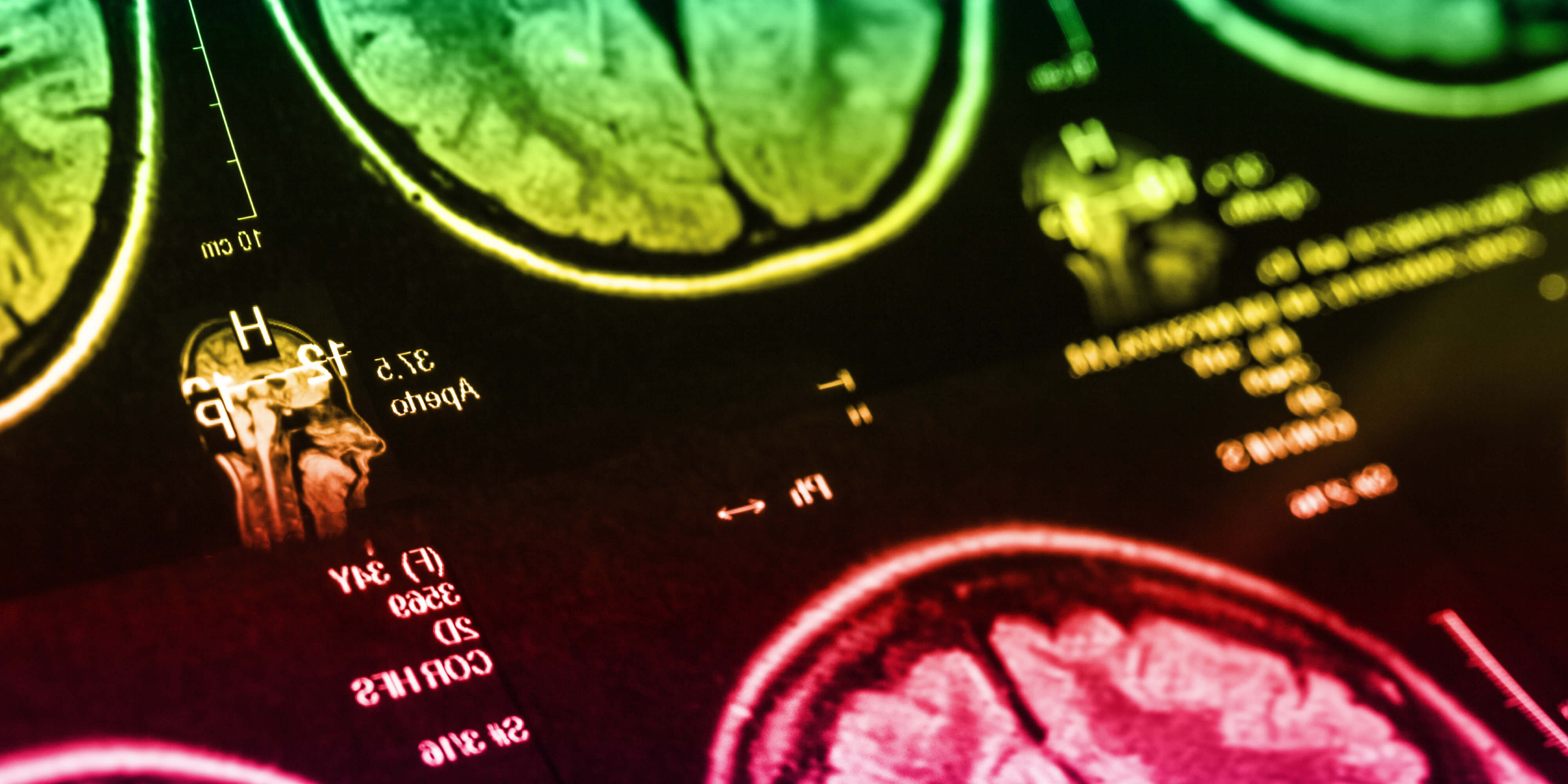The healthy and the sick brain

The talk took place 24th of October 2023.
Follow Medicinens Verden
In this talk, Mie Kristensen and Blanca Aldana will discuss the brain with Alzheimer's, the metabolism of the healthy versus the sick brain and why drug treatment of brain diseases is such a challenge.
More and more people develop Alzheimer’s disease! The Alzheimer’s brain is different from the healthy brain in many ways, but especially because its metabolism is different.
Drug treatment of brain- and central nervous system diseases is difficult, especially because it is particularly challenging to deliver the drugs into the brain.
When Alzheimer’s shuts down the energy factory of the brain
Talk by Associate Professor Blanca Aldana
How much electricity does the brain require to generate a thought? Your brain, a small organ that powers your thoughts, memories, and creativity, is a voracious energy consumer. In fact, the brain uses up around 20% of your body's energy, despite being only 2% of your body weight.
Just like a perfectly designed Formula 1 car needing the proper fuel, your brain thrives on glucose, a sugar that powers its every function. But what other elements in the food that we consume are used to fuel the brain? And what happens when this energy-hungry wonder weakens? That is where our journey into Alzheimer's disease and brain energy metabolism begins.
Alzheimer's disease steals cherished memories and cognitive abilities. Imagine your brain as a bustling energy factory, converting glucose into power for all your cognitive activities. However, in Alzheimer's, this factory may fail, leading to an energy crisis in the brain.
The brain is protected by the blood-brain barrier, a barrier carefully guarding the precious glucose supply. In Alzheimer's, this barrier can weaken and potentially starve your brain of its vital fuel. But there may be hope: Researchers are exploring lifestyle changes, like a healthy diet and regular exercise, as ways to boost your brain's energy. We are working to uncover the secrets of Alzheimer's and develop new treatments.
Blanca Aldana will talk about the latest research on how our brain uses different elements in food to produce energy and how our lifestyle can have a big influence on the health of our brain. It matters what kind of fuel we use for our brains!
About the researcher
Associate Professor Blanca Aldana
Blanca Aldana is Associate Professor at the Department of Drug Design and Pharmacology and leads the research group Neurometabolism in health and disease. See her full researcher profile here
Blanca seeks to discover the molecular mechanisms that regulate the metabolism of sugars, amino acids and fats in brain cells known as neurons and glia and how these mechanisms are affected in brain disease.
We (may) have the drugs for treating brain diseases, but can we get them into the brain?
Talk by Associate Professor Mie Kristensen
The continuously increasing number of patients diagnosed with central nervous system disorders calls for novel medicines to treat brain diseases. However, brain drug delivery is a major challenge! Potent therapeutic drugs have been developed, but the blood-brain-barrier excludes the far majority of these from entering the brain tissue and thereby stopping any therapeutic effects from happening.
The blood-brain barrier is a protective mechanism, created by the walls of the blood vessels in the brain. It’s function is vital, since it protects the brain from e.g. toxins in the body’s blood circulation.
In this talk, Mie Kristensen will take the audience through the major obstacles related to the general poor succes, when it comes to development of drugs for brain diseases such as Alzheimers disease and brain cancer – but she will also present some of the possible solutions on how to overcome these challenges in the future.
So, what are the barriers exactly and how do we get by these?
About the researcher
Associate Professor Mie Kristensen
Mie Kristensen is Associate Professor at the Department of Pharmacy and heads the research group CNS Drug Delivery and Barrier Modelling. See her full researcher profile here
In her research, she seeks to find novel ways to deliver therapeutic drugs to the diseased brain and has a keen interest in mechanistic understanding at the cellular and molecular level.
